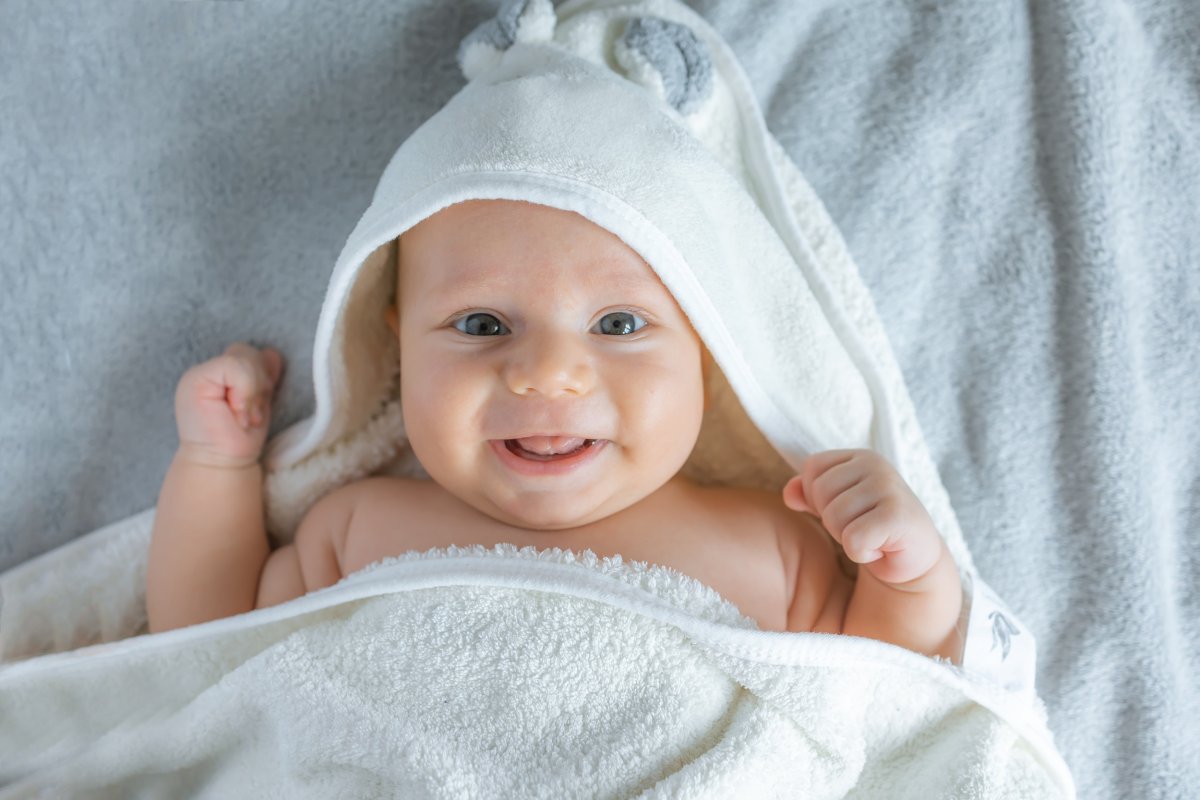Becoming a parent is an eye-opening experience, and there are some things only parents will truly understand such as a baby's scent.
Take Robert Pattinson, for example, who never understood why parents would rave about their newborn's scent until he had a child of his own, with partner Suki Waterhouse in March 2024. In an interview with Vogue, published on Monday, January 20, the 38-year-old actor described his daughter's smell as "incredible" and that he can identify her through smell alone.
Newsweek reached out to parenting expert Rachel FitzD, who spent 30 years as a specialist midwife, and she confirmed his claims are indeed true.

She said: "All babies have that special human baby smell, which is a mix of amniotic fluid and vernix that hangs around for about six weeks. Each baby also has a unique smell, thanks to their genes, that ensures its own parents can recognize it as different from any other baby."
FitzD, who often speaks at the U.K.'s leading pregnancy and parenting event called The Baby Show, described a newborn's smell as "musty and raw."
"We can't get enough of that odor, and yet few of us can adequately describe it when asked. So, what on earth is it we are smelling, and why do we enjoy it so much?"
She told Newsweek: "When babies are inside the womb, they live in a sac filled with amniotic fluid, and their skin is covered with a white, creamy substance called vernix.

"The amniotic fluid is made by the baby and the mother, while the vernix is made by the baby. It nourishes the baby's skin, protects it from the effects of spending nine months in a warm bath, and helps lubricate the way on its journey into the outside world.
"Both the fluid and the vernix have a very particular 'inside the body' smell that midwives are very familiar with.
"When babies are born, both they and their mums are pumped full of adrenaline, and within seconds of being placed onto the newly birthed mother's chest, both baby and mum instinctively breathe in very deeply—the mingling of baby fluids and mother's hard-worked sweat drawing their odors together into a once-in-a-lifetime perfume that entices them into a primitive dance of recognition and bonding. Even when it is not our own baby, our primeval self cannot help but delight in this earthy scent."
Both Mothers and Fathers Can Identify Their Own Children by Smell

In March 2024, a study published in Physiology & Behavior by researchers from Germany tested whether fathers have the same ability as mothers when it comes to recognizing their child's smell. Fifty-six fathers smelled samples from their own children and other children of different ages and genetic backgrounds. Fathers, like mothers, could identify their child's smell and preferred it.
However, this preference wasn't linked to genetics and decreased as the child got older, especially in daughters, supporting the idea that smell helps prevent incest in father-daughter relationships.
FitzD told Newsweek: "Scientists have known for many years that certain genetic chemical odor signals help us to choose our adult mate and that we choose a mate that is as genetically different from us as possible—this helps to protect our species from in-breeding.
"We are totally unaware that this is happening—we are simply mammals after all, with deep primitive drives evolved over millions of years. Well, a recent fascinating study has shown that these same genetic chemical odor signals help us know that our baby belongs to our family, and this time, it is the similarity of our genetic odor signals that triggers our recognition."
She points out that the effect of the birth smells of amniotic fluid and vernix lasts for around six weeks, but the genetic chemical odor signals last until the child reaches puberty.
"It takes a break during their teens, and then the smell recognition remains into adulthood," she added.
If you have a family dilemma, let us know via life@newsweek.com. We can ask experts for advice, and your story could be featured on Newsweek.




















 English (US) ·
English (US) ·